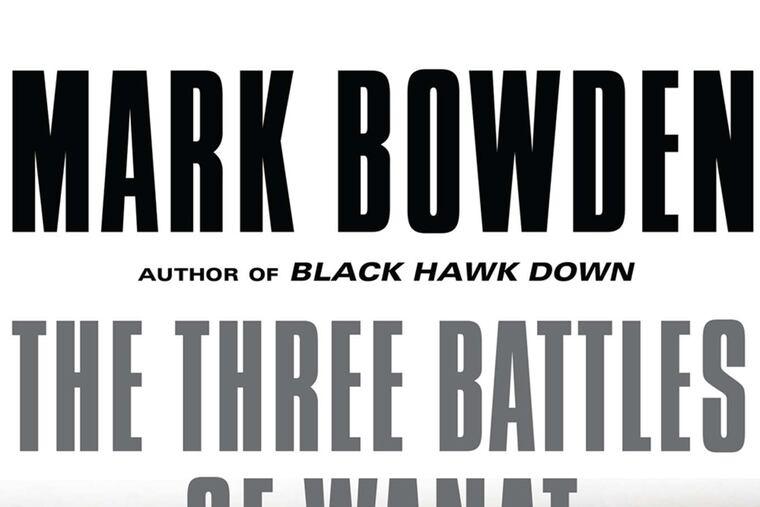Bowden's 'Three Battles of Wanat': Continuing a great tradition
At a reading at a Center City book store some years ago, Mark Bowden spoke of his pleasant surprise that military people and their families were willing to open up to him. He noted that he hadn't served in the military and that, before his Inquirer series on the downing of two Black Hawk helicopters and the subsequent book, he had never covered the military.

nolead begins By Mark Bowden
Atlantic Monthly Press.
474 pp. $27.
nolead ends nolead begins
Reviewed by Paul Davis
At a reading at a Center City book store some years ago, Mark Bowden spoke of his pleasant surprise that military people and their families were willing to open up to him. He noted that he hadn't served in the military and that, before his Inquirer series on the downing of two Black Hawk helicopters and the subsequent book, he had never covered the military.
Although Bowden may not share their mostly hawkish views, military people believe he is a fair reporter. They want their story told, and fairness is all most of them ask for. Bowden is also a fine storyteller, and that's a plus.
His latest book, The Three Battles of Wanat and Other True Stories, is a well-written, well-researched collection of fascinating essays and profiles. Included are long-form pieces on the military, sports, and crime, as well as profiles that originally appeared in the Atlantic, Vanity Fair, the New Yorker, and the Inquirer.
The collection's title essay is an in-depth examination of one of the bloodiest days in the Afghanistan conflict and the finger-pointing investigations that followed. The father of one of the dead soldiers, a retired Army colonel, blamed the Army for the death of his son, Lt. Jonathan Brostrom. This was a complicated military engagement, and Bowden is fair in presenting both sides.
In "The Ploy," Bowden writes about how military and civilian interrogators in Iraq helped the Navy SEALs and Delta special operators hunt down the notorious terrorist Abu Musab al-Zarqawi. "The Last Ace" concerns the evolution of fighter pilots, and "The Killing Machines" examines the efficiency and ethics of using drones in the war on terrorism.
Bowden also profiles North Korean dictator Kim Jong-un, New York Times' publisher Arthur Sulzberger, defense attorney and anti-death-penalty activist Judy Clarke, and Vice President Biden. In "The Angriest Man in Television," Bowden neatly profiles David Simon, creator of the HBO series The Wire, as well as the true-crime book Homicide: A Year on the Killing Streets. The book also includes essays on Bonfire of the Vanities author Tom Wolfe, Abraham Lincoln, and Saddam Hussein. There is also an essay arguing that the film Zero Dark Thirty was not pro-torture, and two amusing essays on Bowden's raising guinea hens on his Pennsylvania farm.
Paul Davis' Crime Beat column and crime fiction are at www.pauldavisoncrime.com.